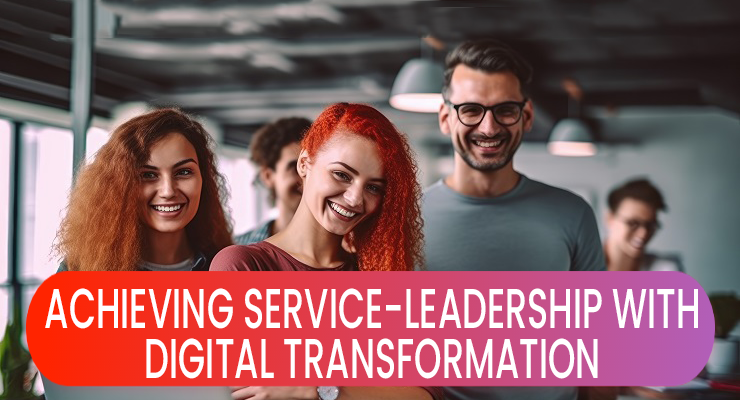Authentic Leadership

AL program is designed for participants to :
-
Appreciate that the prime focus of an authentic leader is the success of the organisation within the construct of social values
-
Be self-aware, develop openness, as well as promote unbiased decision-making and objective amongst participants
-
Participants will be able to relate and focus more with organisational goals
-
Participants will be able to appreciate the importance of authenticity for a Leader
-
The program will help participants to improve communication with colleagues

2 Days

Managers in Mid and Senior Management roles

Simulations, Videos, Case Study, Classroom Lecture (Online)

Module 1: Introduction to Authentic Leadership
- Defining Authentic Leadership: Understanding the core concepts and principles.
- The Importance of Authentic Leadership: Exploring its impact on individuals, teams, and organisations.
- Differentiating Authentic Leadership from Other Leadership Styles: Comparing and contrasting with other leadership approaches.
Module 2: Self-Awareness and Values
- Self-Discovery: Reflecting on personal values, beliefs, strengths, and areas for growth.
- Authenticity and Self-Identity: Exploring the link between authenticity and a strong sense of self.
- Values-Based Leadership: Aligning leadership behaviors with personal values.
Module 3: Emotional Intelligence and Authenticity
- Emotional Self-Awareness: Developing a deeper understanding of one's emotions and their influence on leadership.
- Emotional Regulation: Strategies for managing emotions to maintain authenticity and effective leadership.
- Empathy and Interpersonal Relationships: Building authentic connections with others through empathy and understanding.
Module 4: Building Trust and Credibility
- Trust-Building Behaviours: Exploring behaviours that foster trust and credibility with team members and stakeholders.
- Authentic Communication: Honing transparent and open communication skills to enhance trust.
- Accountability and Integrity: Demonstrating consistency between words and actions.
Module 5: Authentic Leadership in Practice
- Leading by Example: Modelling authentic behaviours for others to follow.
- Ethical Decision-Making: Applying authenticity to navigate complex ethical dilemmas.
- Handling Challenges: Strategies for maintaining authenticity in difficult situations and under pressure.
Module 6: Empowerment and Employee Development
- Empowering Others: Encouraging autonomy, growth, and empowerment among team members.
- Coaching and Mentorship: Using authentic leadership to guide and develop team members.
- Creating a Positive Work Environment: Fostering a culture of trust, respect, and collaboration.
Module 7: Adaptability and Resilience
- Embracing Change: Using authenticity to navigate change and uncertainty.
- Resilience Building: Developing the emotional strength to bounce back from setbacks.
- Learning from Failure: Embracing failures as learning opportunities and displaying authenticity throughout challenges.
Module 8: Authentic Leadership in Diverse Contexts
- Inclusivity and Diversity: Incorporating authenticity in leading diverse and inclusive teams.
- Cultural Sensitivity: Understanding how authenticity can vary across cultural contexts.
- Global Leadership: Adapting authentic leadership principles to a global or multicultural setting.
Module 9: Developing an Authentic Leadership Plan
- Personal Development Goals: Setting specific goals for further developing authentic leadership skills.
- Action Plan: Creating a step-by-step plan to implement authentic leadership principles in daily practice.
- Continuous Growth: Strategies for ongoing self-assessment, reflection, and improvement.
Module 10: Authentic Leadership and Organizational Impact
- Authentic Leadership's Impact on Organizational Culture: Exploring how authentic leaders shape the culture of their organisations.
- Leading Change Authentically: Leveraging authentic leadership to drive positive organisational change.
- Authentic Leadership and Sustainable Success: Examining the long-term benefits of authentic leadership for individuals, teams, and organisations.
Activities and Learning Methods:
- Self-assessment tools for self-awareness.
- Group discussions and case studies.
- Role-playing and simulations.
- Authenticity journaling and reflection exercises.
- Guest speakers and leadership stories.
- Interactive workshops and small group activities.
- Peer feedback and coaching sessions.
- Action planning and goal setting.
The content outlined above aims to provide a comprehensive and experiential learning journey for participants, helping them develop the skills, mindset, and behaviours associated with authentic leadership. The training program encourages self-reflection, interpersonal connections, and practical application, fostering a strong foundation for authentic leadership practices.

SIMULATION: Let Us Do Business

Kroshna Generiwal, Aditya Birla:
"It was a really very insightful and useful program, very interactive."
Abhay Kumar Bogar, Murugappa Group:
Program was really very insightful and useful program, very interactive.





